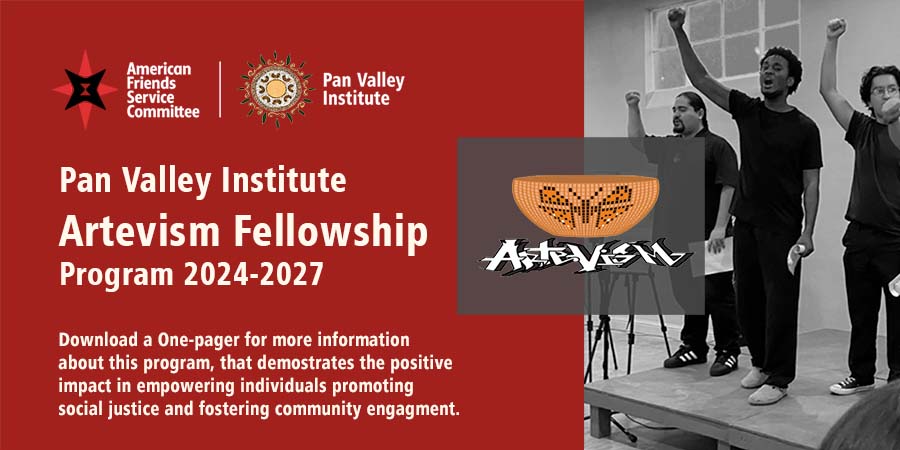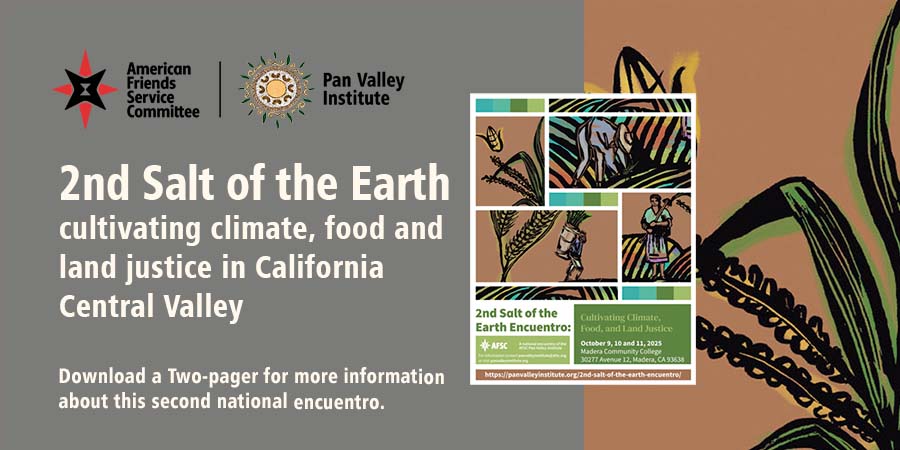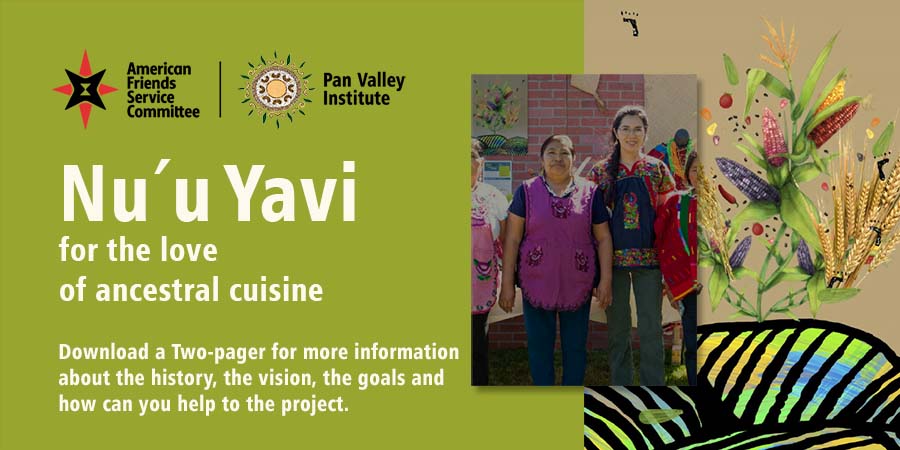What We Do
Active Citizenship
The ArteVism Program uses art and culture as powerful tools for social change, engaging a broader public and empowering participants to become social actors of change. It addresses pressing social issues, promotes inclusivity, and builds thriving and solidarity communities.
ArteVism One-Pager Content
Economic Justice
We believe that building a Central Valley that offers economic and environmental security for everyone requires addressing three key issues: the link between food production and migration, how large-scale agribusiness creates economic inequalities, and new and existing opportunities to enhance immigrant economic mobility.
In 2023, we initiated the implementation of our economic justice initiative with the following project:
Salt of the Earth: Cultivating Climate, Food and Land Justice
PVI’S Methodologies for Achieving Impact
The Pan Valley Institute defines popular education as a democratic process for bringing about social change. It’s not a strategy as much as a philosophy and a way of working that focuses on everyday people. Yet equality in popular education is found not in the philosophy, but in the practice. Ultimately, popular education is a process of transforming disenfranchised people into social actors who continuously support, encourage, and learn from each other as they plan and implement strategies for achieving social and economic justice and then evaluate their effectiveness.
We will continue to develop popular education and cultural organizing strategies that inspire communities to work together, build solidarity ties and networks, organize themselves, and become more actively involved in public matters and promoting systemic changes. We will continue practicing direct action and advocacy to accompany and join immigrants and refugees in the protection and enactment of their human, civil, and cultural rights.
Participatory Action Research
Participatory Action Research (PAR) is a process of generating collective knowledge that is then applied to change a specific social condition that impacts the most marginalized members of society. By validating the knowledge of the most oppressed groups, this methodology enables participants to enhance their understanding and use it to transform their conditions of oppression.
PAR research methods are based on the principles of popular education, subscribing to the idea that everyone involved brings expertise to the equation and provides equal value to the process. The outcome is that the knowledge that is generated will lead to action that will eventually change the problem that was being addressed, improving the lives of participants.
Because PAR is a collective process of studying and analyzing one or more pressing issues, participation is crucial. Those involved must accurately and fairly represent their communities and voice their concerns. Participants must be committed to taking action toward solving the specific issues addressed.
Cultural Work/Cultural Organizing
At PVI, cultural organizing aims to revitalize and sustain immigrants’ artistic expression and cultural practices in order to support them in their efforts to become more socially and politically included, and to help build stronger, more active communities. Our guiding principle when engaging in cultural organizing is that the participants must always choose how to express their culture and how they want to participate in civic life. Following this general premise, our approach to cultural work/cultural organizing makes the following assertions:
Active Citizenship and Developing Social Actors
Immigrant civic participation is often discussed in terms of naturalization and legal citizenship, and voter registration and voter turnout. While both of these areas of immigrant civic engagement are important to PVI, we also recognize a broader array of civic engagement values and principles as central to our work. “Active citizenship” is based on the principles of full engagement embraced by PVI and activated through our cultural organizing work.
PVI’s approach to active citizenship includes paying close attention to the value of:
-
Developing and nurturing individual leadership, voice, skills, knowledge, and strengths of immigrants engaged in public problem solving despite their immigration status.
-
Building strong social and professional networks and institutional relationships that enable people to work together across common boundaries, and effectively address the issues they care about in a way that builds deep and sustainable work for the long haul.
-
Strengthening immigrant institutions, including the resources, governing structures, and organizational capacities that enable long-term support systems and broad-based problem solving in the public arena.
-
Mapping and supporting community capital, or the mentors, elders, informal associations, and helping systems that enable individual immigrant leaders and immigrant groups to engage beyond their own local communities and beyond their communities of origin.
-
Inspiring immigrants to engage in civic life as full contributing members of society and democratic life as thinkers and actors around local problem-solving, public debate, and policymaking.
Who we work with
PVI works with and on behalf of the Central Valley’s long-established and newly arrived immigrant and refugee populations, most specifically in Merced, Madera, Fresno, and Tulare counties. Many of them confront a number of inequalities such as poverty, racial and cultural discrimination, and alienation from political power.
For decades, the Central Valley agricultural industry has attracted workers from as far away as Armenia, India, China, Mexico, and other parts of Latin America. The Valley is also home to many immigrants from Southeast Asia and Central America seeking refuge from wars, political conflicts, and economic insecurity. More recently, we are witnessing groups of refugees and immigrants coming from the Middle East: Iraq, Palestine, Syria, and Iran.
Looking Ahead
PVI’s work in the next 10 years will focus on building Central Valley communities that value ethnic diversity and in which racial, economic, and social inequalities are not tolerated. Our work that will advance building a more inclusive socio-political landscape in the Central Valley, one in which the voices of immigrants and refugees resonate.
We aspire to build communities where all belong. We want to see social exclusion and racism replaced by a culture that respects and values cultural and ethnic diversity, as well as immigrants’ contributions. With our community partners and allies, we commit to work for a more just and diversified economy that is not solely driven by agribusiness, but provides economic security opportunities for all.
At PVI, we are committed to spending the next 10 years creating a Central Valley in which
immigrants, refugees, and other disenfranchised communities have a seat and a voice at the table where political decisions regarding their lives are made.
As an organization, our goals are to
- create a safe and welcoming cross-cultural popular education and participatory research learning center;
- affirm and strengthen solidarity networks, partnerships, and friendships;
- ensure PVI’s financial stability.




